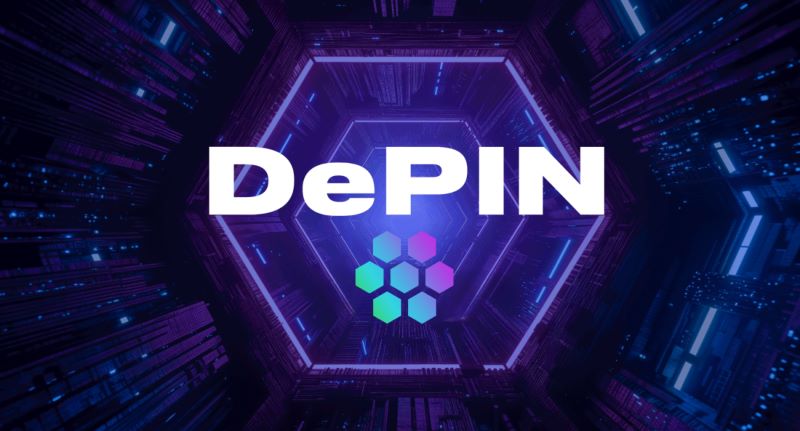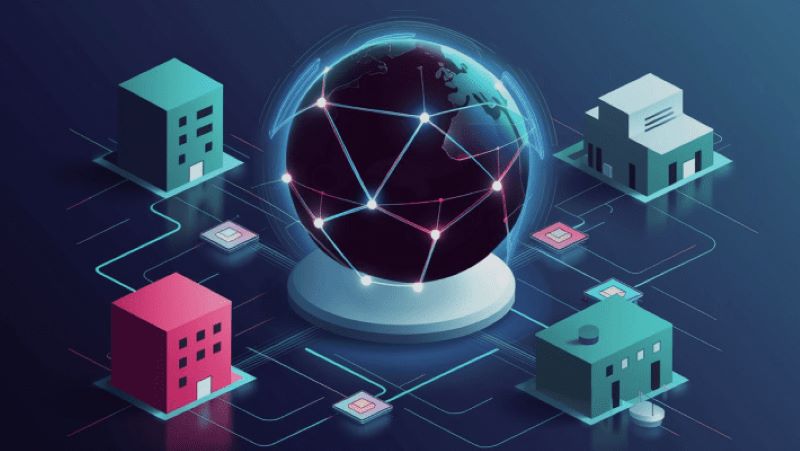DePIN Real World Usage is transforming how we interact with various infrastructures, offering innovative solutions across multiple sectors. In this exploration, we will delve into three distinct solutions provided by DePIN that are shaping the future. From revolutionizing telecommunications to optimizing renewable energy management and enhancing logistics systems, these applications demonstrate the significant impact of DePIN technology. Understanding these real-world uses not only highlights the potential of decentralized infrastructure but also emphasizes its critical role in advancing modern technology.
Definition of DePIN and its Basic Principles
To explore DePIN Real World Usage, it is necessary to first understand what DePIN is and its underlying principles.
Definition of DePIN:
DePIN (Decentralized Physical Infrastructure Network) is a blockchain technology model designed to provide and manage physical infrastructure in a decentralized manner. This model enables the development, ownership, and operation of infrastructure such as telecommunication networks, energy systems, and logistics services through distributed networks, rather than relying on centralized organizations.
Basic Principles of DePIN:
- Decentralization: DePIN operates on the principle of decentralization, where decisions and management are not controlled by a single central entity. Instead, power and responsibility are distributed equally among the nodes in the network.
- Blockchain and Smart Contracts: The Depin real world usage with blockchain technology allows for the storage and verification of transactions to store and validate transactions and information related to the infrastructure. Smart contracts automate processes and ensure transparency and security.
- Tokenization: In the DePIN model, assets and ownership rights of infrastructure can be tokenized on the blockchain. This simplifies transactions, ownership sharing, and promotes the participation of multiple parties in infrastructure management.
- Scalability and Flexibility: DePIN allows for flexible expansion of the infrastructure network thanks to the ability to connect and collaborate between different components within the blockchain ecosystem.
DePIN Real World Usage – Telecommunications Infrastructure Solutions
DePIN (Decentralized Physical Infrastructure Network) offers a decentralized solution for managing telecommunications infrastructure, optimizing the deployment and operation of telecommunication network facilities. Under this principle, telecommunication infrastructure components are no longer dependent on a single central entity but are distributed across a decentralized network. This helps mitigate risks associated with centralized power and enhances transparency.
-
DePIN real world usage – Enhanced Connectivity and Security: One of the main applications of DePIN in telecommunications infrastructure is improving the connectivity and security of telecommunication networks. By utilizing blockchain technology, DePIN provides a highly secure platform with the ability to authenticate and store transaction data in a safe and transparent manner. This helps protect data from cyberattacks and other security threats.
- Cost and Management Optimization: DePIN allows telecommunication service providers to minimize costs associated with deploying and maintaining infrastructure. Smart contracts can automate many management and payment processes, thereby reducing the need for third-party intervention. The tokenization system also simplifies the sharing and management of infrastructure ownership, while promoting the participation of multiple parties in the development and maintenance of telecommunication facilities.
- Innovation in Service Provision and Market Access: The application of DePIN real world usage to telecommunications infrastructure also opens up opportunities for service providers to offer new and innovative services. With flexible connectivity and good integration capabilities, DePIN helps expand market access and facilitates the development of more diverse and advanced telecommunication services.
DePIN Solutions in Renewable Energy
DePIN (Decentralized Physical Infrastructure Network) in renewable energy applies blockchain technology to create a decentralized infrastructure management network. The basic principle is to utilize a distributed network to manage, share, and optimize the use of renewable energy resources such as solar, wind, and hydropower. This reduces dependence on centralized systems and enhances flexibility in energy production and distribution.
- Enhancing Efficiency and Resource Management: One of the essential applications of DePIN real world usage in renewable energy is optimizing the efficient use of resources. Blockchain technology and smart contracts enable the automation of energy distribution and consumption processes, ensuring that renewable energy sources are utilized most effectively. For instance, DePIN systems can track and manage the distribution of energy from renewable sources to consumers while providing accurate information about energy output and demand.
- Supporting and Encouraging Investment: DePIN also plays a vital role in encouraging investment in renewable energy. By utilizing a tokenization system, investors can easily participate in renewable energy projects and transparently track their investment performance. Tokens can represent ownership, profits from energy production, or other project-related factors. This not only increases the attractiveness of renewable energy projects but also promotes community participation and involvement from small-scale investors.
- Creating a Sustainable Economic Model: DePIN Real World Usage also contributes to building a sustainable economic model in the renewable energy sector. By distributing energy ownership and management in a transparent and decentralized manner, the DePIN system enhances collaboration among stakeholders, including producers, consumers, and investors. This helps create a stable and sustainable environment for the development and deployment of renewable energy solutions.
DePIN Real World Usage in Logistics and Transportation
DePIN (Decentralized Physical Infrastructure Network) in the field of logistics and transportation is the application of blockchain technology to manage and optimize operational processes within the supply chain and distribution. The fundamental principle of DePIN in this area is to utilize a decentralized network to monitor, track, and improve logistics operations, from warehouse management and freight transportation to the processing of transactions and related documents.
- Enhanced Transparency and Tracking: One of the essential applications of DePIN real world usage in logistics and transportation is its ability to provide transparency and accurate tracking capabilities. By using blockchain technology, all information related to the supply chain, including the origin of goods, transportation processes, and the status of goods, is recorded publicly and immutably. This allows stakeholders to easily track and verify the condition of goods, minimizing the risk of fraud and errors during transportation.
- Process Optimization and Cost Reduction: DePIN helps optimize logistics and transportation processes by automating procedures and reducing the need for manual checks. Smart contracts can be used to automate transactions and processes related to transportation, including payment confirmation, order processing, and warehouse management. This not only reduces operating costs but also improves the speed and efficiency of the entire logistics system.
- Improved Management and Coordination among Stakeholders: The DePIN solution in logistics and transportation also helps improve coordination and management among stakeholders in the supply chain. With a decentralized system, all stakeholders, including suppliers, manufacturers, distributors, and customers, can access the same real-time data and information. This enhances collaboration and synchronization among parties, minimizing delays and conflicts during the transportation and distribution of goods.
- Enhanced Security: DePIN real world usage provides a higher level of security due to the distributed and encrypted nature of blockchain. All data and transaction information are securely stored and protected, reducing the risk of attacks or unauthorized access. This ensures that sensitive information related to transportation and logistics is kept confidential and secure.
The exploration of DePIN Real World Usage has revealed its transformative potential across various sectors, including telecommunications infrastructure, renewable energy, and logistics. By leveraging decentralized networks and blockchain technology, DePIN offers innovative solutions that enhance transparency, efficiency, and security. As we move towards a future driven by digital innovation, understanding these applications will be crucial for harnessing the full benefits of DePIN. For further insights and developments on this topic, stay tuned to Blockchainbulletinweekly for the latest updates and analyses.



